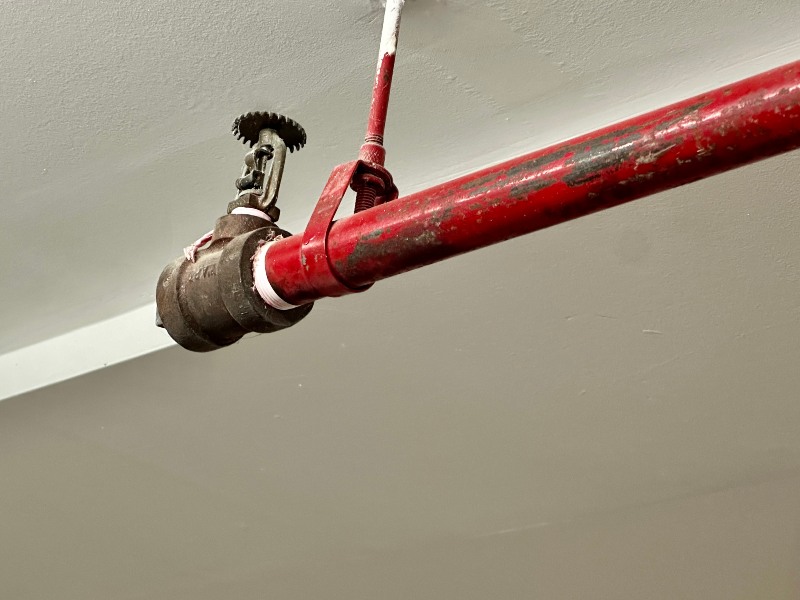Service 1st Fire Protection LLC helps you maintain your fire sprinkler system in Phoenix, AZ. A properly working system is your first defense against unexpected fires at home or in your business. But what if the very system you rely on for safety is quietly under attack? Corrosion is a leading cause of failures in fire sprinkler systems, yet it often goes unnoticed until significant damage has occurred. Whether you’re a Phoenix homeowner with a residential fire sprinkler system or managing the safety compliance for a commercial building, understanding corrosion’s impact is crucial. Keep reading below to learn how corrosion forms, the warning signs to look out for, and the steps you should take if you discover a leak. We’ll also share practical strategies to prevent future issues, keeping your fire and sprinkler system installation working when needed.

Deconstructing the Causes of Corrosion
Corrosion is an electrochemical process that gradually weakens metal over time. When it comes to fire sprinkler systems, corrosion can severely compromise the integrity, reliability, and lifespan of pipes and fittings. This could render them ineffective when a fire breaks out. Why does corrosion happen? Several factors collide to trigger and accelerate corrosion in fire sprinkler systems, including the following:
- Presence of oxygen: Water inside the pipes naturally contains dissolved oxygen. When the two come into contact with metal components, oxidation occurs, forming rust.
- Standing water: Systems with stagnant or non-circulating water are even more vulnerable, as this intensifies exposure to oxygen and any lingering contaminants.
- Microbial growth: Microbiologically Influenced Corrosion (MIC) involves bacteria that thrive in damp environments, further accelerating damage.
- High chloride or high water hardness: The local water supply, especially in cities like Phoenix, may contribute to corrosion due to elevated mineral content.
- Aging infrastructure: Older fire sprinkler system installations are more likely to have weakened protective coatings or accumulated debris, reducing corrosion resistance.
- Improper system maintenance: Irregular inspections and delayed repairs expose systems to small leaks, which quickly become bigger, costlier problems.
Discovering a Fire Sprinkler Leak: The Next Steps
Unaddressed corrosion can become a leak or even a catastrophic failure at the worst possible moment. If you identify or suspect a leak in your fire sprinkler system, swift action is essential to protect your property and those within it. Here’s what to do when you spot a leak:
- Stay calm and assess safety: Make sure there’s no immediate fire risk. If a fire is present, evacuate and call emergency services.
- Shut off the water supply: If safe, isolate the affected section or use the main shutoff valve for the fire and sprinkler system to prevent water damage.
- Document the damage: Take clear photos and note the exact location of the leak. This helps during repairs and with insurance claims.
- Contact professionals immediately: Contact a certified provider like Service 1st Fire Protection LLC. Prompt, expert help ensures a thorough inspection and a lasting fix.
- Do not attempt DIY repairs: Fire sprinkler systems require specialized expertise and compliance with local codes in Phoenix, AZ. Improper attempts can lead to further damage or void warranties.
- Schedule a comprehensive inspection: A full-system review can uncover hidden corrosion elsewhere, even if the leak seems small.
How to Avoid Future Leaks
Leak prevention isn’t just about reactive repairs. It’s about proactive care for your fire sprinkler system. Consistent maintenance, timely upgrades, and professional advice are your best tools to ensure system reliability. Here’s how to minimize your risk:
- Regular maintenance checks: Schedule semi-annual or annual inspections with a reliable service provider familiar with Phoenix’s unique climate and water composition.
- Install air release valves: These can effectively remove trapped air in wet pipe systems, slowing down oxygen-driven corrosion.
- Consider corrosion-resistant materials: Modern fire sprinkler system installation may include CPVC or galvanized steel for extra durability.
- Flush the system periodically: This step reduces mineral buildup and microbial activity, especially in areas with hard water.
- Water quality analysis: Monitor and, if needed, treat incoming water to manage mineral content and reduce corrosive effects.
- Monitor for microbial activity: If MIC is a concern, consider biocide treatments or other preventive measures recommended by a fire safety specialist.
Trust Us to Secure Your Fire Sprinkler System
If you’re in Phoenix, AZ, and concerned about the health of your fire sprinkler system, don’t wait for a small issue to become a significant expense. Service 1st Fire Protection LLC specializes in various services tailored to local needs.Our expert team will assess your existing fire and sprinkler system and recommend immediate solutions. We’ll also create a custom plan to protect your property against corrosion-related failures. Experience peace of mind knowing your safety investment is in the best hands. Contact us today for a system assessment or to schedule a routine inspection. Protect your home or business and ensure your fire sprinkler system operates flawlessly when needed.